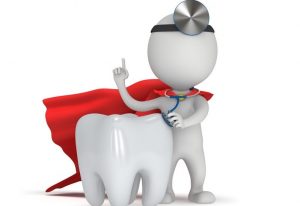
Important information that could impact your health and well-being
By Dr. Ruth Kenworthy
A dental emergency will most likely happen to you or a loved one at some point in your life. Here are a few tips from a lifetime of experience as a dental professional. I hope this information will make you feel more competent and help aid you in your time of crisis.
People often ask me: “What is considered a dental emergency and what should I do?” In general, it is always a good idea to try to stay as calm as possible. Focus, instead, on taking appropriate steps. Here are some tips that will help.
- First, concentrate on stopping bleeding, if there is any, as well as protecting your injured area.
- Do not take aspirin or ibuprofen. They are anticoagulants, which can cause excessive bleeding. If you are in pain, opt for acetaminophen (Tylenol) and only take as directed on the label.
- Call to make a dental appointment as soon as possible. Letting dental emergencies go too long can result in infection or other complications.
- If it is a life-threatening emergency, call 911 or go to the nearest emergency room.
- Common reasons for pain include lost or broken teeth, fillings or crowns as well as infection. If you are in pain, you may also apply ice to the area for 10-20 minutes of each hour.
- If there is a chance that your jaw may be broken, do not attempt to move it. Keep it in place using a handkerchief or towel tied around the jaw and over the top of your head. Use ice to reduce swelling and go to the emergency room immediately.
- If there is debris between your teeth: Gently insert floss (never any other objects) between your teeth. If you are unable to remove it, see your dentist as soon as possible.
- For chipped or broken teeth:
- Bring the tooth piece/s with you to our office.
- Rinse your mouth using warm water and try to clean it.
- Apply gauze with pressure to the trauma area to stop bleeding. If it doesn’t stop after 10 minutes, go to the ER.
- Cold compresses (ice) can help with swelling.
- If tooth pieces are recovered but dirty, place a towel in a sink and gently rinse them.
- Cover tooth pieces with milk, water with a pinch of salt, or saliva from the person the tooth belongs to.
- If your baby’s tooth is somehow dislodged from their mouth, call your dentist right away. Chances are the tooth cannot be re-implanted once it is completely disconnected.
- If an adult tooth is dislodged from your mouth, you have one to two hours for possible re-implantation. Follow the above steps in to save the tooth, always holding the tooth by it’s crown/enamel not it’s root. Do not ever “scrub” the tooth.
- In case of lost fillings or crowns, you can relieve some pain by using clove oil. Dip a cotton swab in the oil and apply it to the exposed part of your remaining tooth. Cold compresses can also help.
- When you’ve lost a filling, you can fill the hole with tooth wax or tooth cement. Do not use household adhesives.
- When you’ve lost a crown, apply denture adhesive or dental cement and gently put it back in place.
- If a cut on your tongue is larger than ¼ inch, or if the bleeding does not stop after 10 minutes, go to the ER.
- We’ve all experienced burns in our mouth from hot foods! If the resulting sores or blisters do not go away after 10 days, call our office.
- Warm salt water rinses containing 1/8th teaspoon salt in eight ounces of water after meals will help to keep areas with sores or blisters from burns clean.
- If you have mouth sores from new braces, use a topical anesthetic found over-the-counter in your pharmacy.
- If you have lingering pain or swelling in your gums, call our office. This can be a sign of serious problems such as abscess. Only a dental professional can diagnose the cause.
- If you have an abscess that ruptures, you may experience a foul smell and/or foul-tasting fluid. Rinse your mouth immediately with warm water.
- If you have wire poking you from braces or a bracket has been knocked off, call our office and/or your orthodontist. Use a cotton swab or pencil eraser to push the wire flat against your tooth. If this does not work, cover it with dental wax.
- If you’ve lost a wire or ligature from your braces, call our office and/or your orthodontist. If you found the rubber ligature, you may be able to carefully put it back using sterile tweezers, but do so gently.

